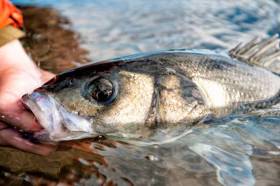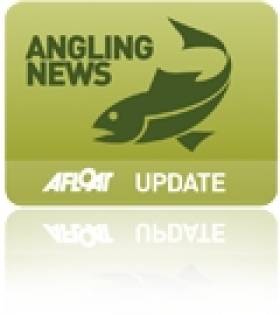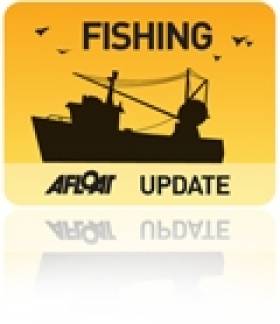Displaying items by tag: sea bass
New EU Regulations For Irish Sea Bass Fishery
#Angling - The European Union has introduced new regulations for the Irish sea bass recreational fishery, which will operate on a catch-and-release basis for 2018.
This outcome is a result of successful negotiation by Marine Minister Michael Creed at the Fisheries Council in Brussels last week, where the initial proposal from Europe was for a complete ban on recreational angling for six months and a catch-and-release fishery for six months.
Inland Fisheries Ireland (IFI) says it now awaits updated Irish legislation from the Department of Agriculture, Food and the Marine to allow for the enforcement of a catch-and-release fishery in all areas of the country from 1 January 2018.
The new rule, which applies to Ireland, states: “In recreational fisheries, including from shore, in ICES divisions 4b, 4c, 7a to 7k, only catch-and-release fishing for European seabass shall be allowed. It shall be prohibited to retain on board, relocate, tranship or land European seabass caught in that area.”
The new catch-photo-release (#cprsavesfish on social media) regulation sees a consistent approach being applied throughout the Irish coastline.
The strict bass management regime currently operating for Irish waters is based on a heavily controlled and restricted recreational fishery, says IFI, which adds that bass anglers have an extremely positive approach to bass conservation, catch and release, and the requirement for good handling in order to maintain the species and their recreational activity.
IFI also acknowledges the support of anglers for its ‘citizen science’ bass conservation programme.
Anglers, through their conservation-oriented ethos, have been the key stakeholders in supporting research into bass stock status over the past five years by providing catch and fish stock data, which has underpinned provision of scientific and management advice.
Economically, the bass recreational fishery is extremely valuable to rural coastal communities.
Earlier today, IFI issued a reminder to all Irish salmon and sea trout anglers to submit their 2017 log book.
UK Anglers Cry Foul Over Proposals For Sea Bass Catch
#Angling - Sea anglers in the UK fear being restricted to catching just one sea bass a day under Brussels-led measures to combat decline of the species.
According to the UK's Independent, the European Commission says evidence compiled by scientists recommends and 80% reduction in sea bass fishing across Europe.
The drastic cut proposed for 2015 comes after a sharp but unsustainable rise in the species' popularity among both recreational anglers and restaurateurs.
But the plans have been described as "grossly disproportionate" by the UK's Angling Trust, which also disputes claims from Brussels that anglers account for a third of the total sea bass catch.
The Independent has much more on the story HERE.
Bass Fishing Permit Refusal is Welcomed
Environmentalists have welcomed the decision by the Minister for the Marine to refuse a permit for commercial sea bass fishing in the Celtic Sea, The Irish Times reports.
The Friends of the Irish Environment hailed Minister Simon Coveney's retention of the total ban on commercial exploitation of sea bass stocks.
Anglers are only permitted to keep two of such fish measuring more than 40cm in any 24-hour period.
There has been much opposition to the proposal by the Federation of Irish Fishermen to lift the ban on commerical bass fishing.
The species has been on the protected list for more than 20 years but this protection was only made permanent in 2006.































































